Tehzeeb Festival stays true to its promise
Disciples performed in front of greats, proving why the legacy is in safe hands
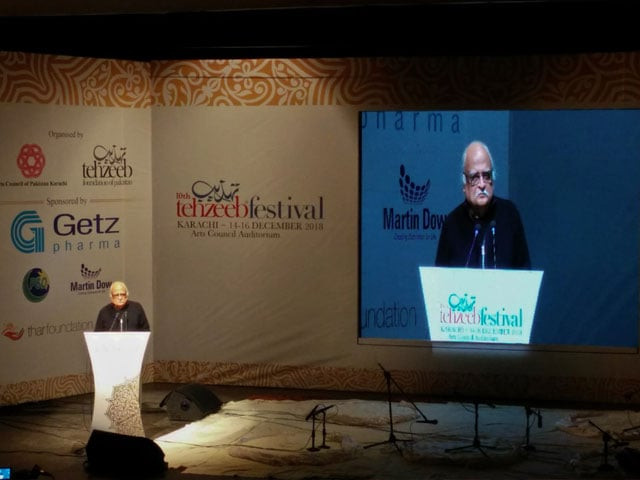
PHOTO: NARENDRA KHATRI
For societies that have developed beyond the problems of basic needs, music serves the purpose of leisure. For the ones that are still struggling (like ours), music is a balm on the bruises. It has an impact on the overall consciousness and personality of a collective, which is why all sorts of music, if not funded by the state, should be encouraged.
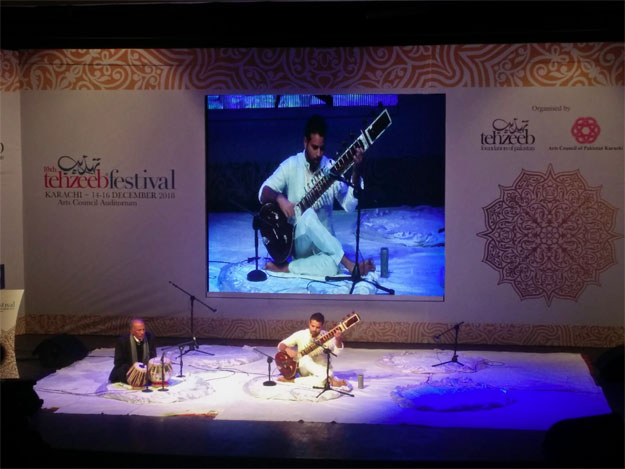 PHOTO: NARENDRA KHATRI
PHOTO: NARENDRA KHATRIUnfortunately, that is not the case. “Classical music is dead in Pakistan,” is a phrase that every aficionado has said and every other music journalist writes at least once every five years. Even if the statement is considered statistical and classical music is taken for a man (for obvious reasons) who hung himself, then foundations such as Tehzeeb have held the dead man’s rope firmly. Friday night saw the spirit of culture and music being celebrated with enthusiasm on the first day of 10th Tehzeeb Festival at the Arts Council in Karachi.
Interactive session: Lok Virsa organises muzakra on visual culture of Milad
The night started with a jugalbandi between three of the youngest musicians from Karachi’s classical music circle. Gul Mohammad on the sarangi and Waqas Gulab on the tabla indulged with what can be called a session lose jamming. Note after another, the duo played with your emotions; they were all in sync, yet you could feel the sentiment of each one of their instruments. Mohammad has evolved over a period of time and it is refreshing to witness his training in Hindustani classical not being spoiled by various outings with pop-rock musicians.
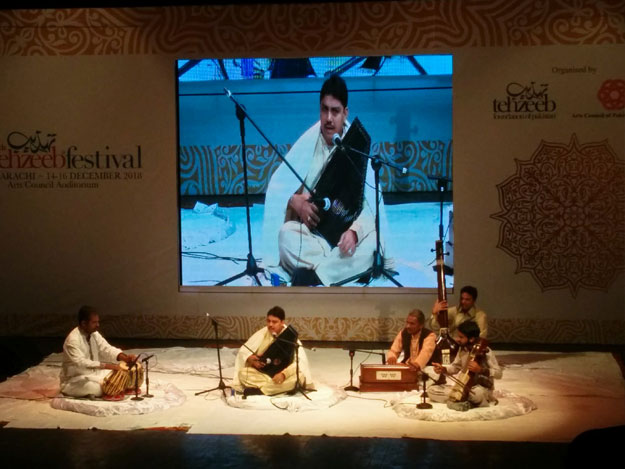 PHOTO: NARENDRA KHATRI
PHOTO: NARENDRA KHATRIPerhaps that is the biggest achievement of a venture like Tehzeeb. By providing the young and the stalwarts of Hindustani classical a space to shine, they maintain the much needed balance in the industry. Although balance would suggest that festivals of Tehzeeb’s stature happen every now and then but ‘classic’ has always tempted a few puritans and not as much the proponents of ‘fusion’ music and all that jazz.
Next up was musicologist, sitar player and Mughal-e-Funk front-man Rakae Jamil accompanied by Ustad Khursheed Hussain on the tabla. My first experience of watching Rakae live was also at the Tehzeeb Sitar Festival a few years back. He wasn’t only rusty but struggled to handle the pressure of the crowd that was full of taste-makers.
But this was a new Rakae altogether. The calmness, the nuance and the authority with which he plucked every string spoke of an artist who has found his true calling in the sitar. His colleague on stage is no less than a veteran and the way he lifted the crowd’s hopes and drowned them in sorrow spoke of why Hussain is regarded as one of the finest.
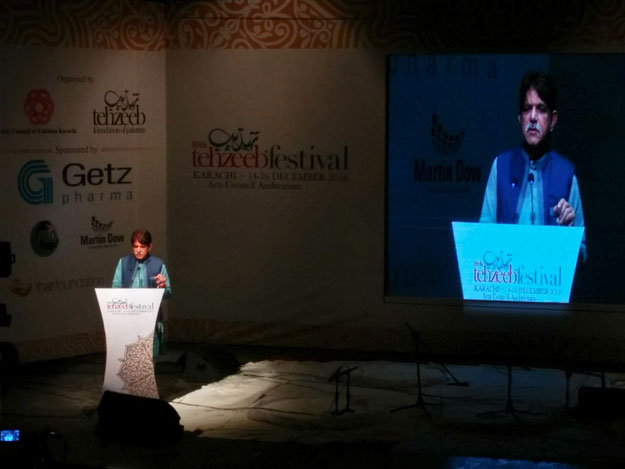 PHOTO: NARENDRA KHATRI
PHOTO: NARENDRA KHATRIImran Ilyas Khan was up next and he lived true to the name of the Patiala gharana. Not only was he particular about the humble mannerisms of performing in front of the teachers but also meticulous in his extraordinary range as a Kheyal singer. Imran took the risks that no Kheyal singer of his age and experience would attempt and he did so with comfort, effortlessness and above all dedication. He is a guarantee that no matter what happens to the legacy of one part of the Patiala gharana in Pakistan, the other is sticking to their roots.
The floor then opened for Anwar Maqood’s hilarious, yet redundant, satire and the night closed with a performance of Gawalior Gayeki by Ustad Fateh Ali Khan who was accompanied by Ustad Bashir Khan on the tabla.
Have something to add to the story? Share it in the comments below.

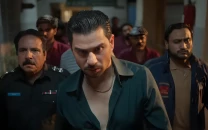

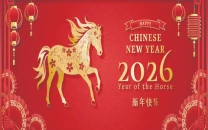















COMMENTS
Comments are moderated and generally will be posted if they are on-topic and not abusive.
For more information, please see our Comments FAQ